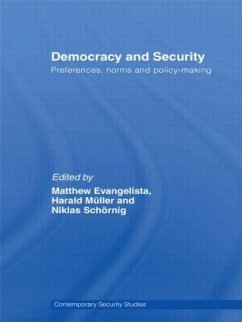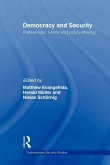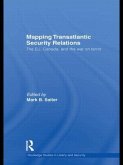It has become generally accepted wisdom that democracies do not go to war against each other. However, there are significant differences between democratic states in terms of their approach to war and security policy in general. This edited book offers a broad examination of how democratic preferences and norms are relevant to security policy beyond the decision of whether to go to war. It therefore offers a fresh understanding of state behaviour in the security realm. The contributors discuss such issues as defence policy, air war, cluster bombs, non-lethal weapons, weapons of mass destruction, democratic and non-democratic nuclear weapon states' transparency, and the political and ideological background of the ongoing 'Revolution in Military Affairs'. It has become generally accepted wisdom that democracies do not go to war against each other. However, there are significant differences between democratic states in terms of their approach to war and security policy in general.
Hinweis: Dieser Artikel kann nur an eine deutsche Lieferadresse ausgeliefert werden.
Hinweis: Dieser Artikel kann nur an eine deutsche Lieferadresse ausgeliefert werden.








